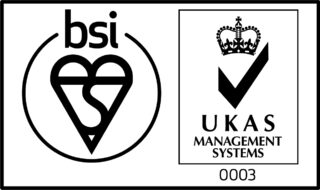Park Xpress Newsletter February 2019
Welcome to the first edition of Park Xpress. This new, regular newsletter aims to keep you informed and up to date about activities and developments at Saltend Chemicals Park.
We use cookies to help you navigate efficiently and perform certain functions. You will find detailed information about all cookies under each consent category below.
The cookies that are categorized as "Necessary" are stored on your browser as they are essential for enabling the basic functionalities of the site. ...
Necessary cookies are required to enable the basic features of this site, such as providing secure log-in or adjusting your consent preferences. These cookies do not store any personally identifiable data.
Functional cookies help perform certain functionalities like sharing the content of the website on social media platforms, collecting feedback, and other third-party features.
Analytical cookies are used to understand how visitors interact with the website. These cookies help provide information on metrics such as the number of visitors, bounce rate, traffic source, etc.
Performance cookies are used to understand and analyze the key performance indexes of the website which helps in delivering a better user experience for the visitors.
Advertisement cookies are used to provide visitors with customized advertisements based on the pages you visited previously and to analyze the effectiveness of the ad campaigns.
Park Xpress Newsletter February 2019
Welcome to the first edition of Park Xpress. This new, regular newsletter aims to keep you informed and up to date about activities and developments at Saltend Chemicals Park.
We would like to make you aware that the Health and Safety Executive (HSE) will be holding five, one-day stakeholder events across the UK covering EU Exit and its impact on the chemical regimes in a no-deal scenario.
The events will include:
The events will include some similar messaging to previous events but will reflect the current state of play. All five events will follow the same format.
These events will be more widely advertised on Monday 11th February, however we would like to give you the opportunity to share with your members and allow them early access to book a place. If they would like to attend they should use the links provided below, further details on the events are provided in the link. Please note a ticket will be required to enter the event.
To allow as many as possible of your members and other organisations to attend, and as all events will follow the same format, we kindly ask that you consider the most appropriate location and send a maximum of two representatives across all five events.
KCOM Stadium, Hull on Wednesday 27th February 2019
Book a place here.
Sophia Gardens Stadium, Cardiff on Friday 1st March 2019
Book a place here.
Millennium Gloucester, London on Tuesday 5th March 2019
Book a place here.
Chester Racecourse, Chester on Thursday 7th March 2019
Book a place here.
Murrayfield Stadium, Edinburgh on Friday 15th March 2019
Book a place here.
The Department of Business, Energy and Industrial Strategy has published a policy paper on The Grand Challenge Missions including establishing the world’s first net-zero carbon industrial cluster by:
Success in this mission would transform our industrial clusters into world leading low-carbon manufacturing hubs, safeguarding existing jobs and companies on which the prosperity of key regions depends.
It will further establish the UK’s position at the forefront of the global shift to Clean Growth by developing world-leading expertise in green manufacturing products, and the technologies and services required to produce them. The mission aims to attract inward investment, new business and employment opportunities.
It will support the cost-effective decarbonisation of our industrial sector, which accounts for around a quarter of all UK GHG emissions.
Up to £170 million from the Industrial Strategy Challenge Fund will support the mission through the Industrial Decarbonisation Challenge.
If you would like a PDF version of the 2019 Members Directory, please contact Lisa – lisa.buck@catchuk.org


The UK Government will invest £170 million over four years through the Industrial Strategy Challenge Fund Transforming Construction programme to support cross-sector innovation that will help the construction and infrastructure sector improve productivity and optimise the whole life-cycle value of buildings and structures.
The Innovate UK Knowledge Transfer Network (KTN) and i3P supported by the Chemistry Council are hosting a unique joint event which will bring the UK chemical sector & UK infrastructure supply chain together with clients representing the UK’s largest live infrastructure projects including HS2, Tideway, Crossrail, etc) to explore opportunities for collaborative innovation.
Chemical companies will hear from clients in the infrastructure sector about the critical innovation challenges faced within these large-scale projects and then have an opportunity to work together with the supply chain to scope out potential collaborative projects that – through chemistry and chemical products innovation – could address those innovation challenges.
This will be a unique opportunity for the chemical sector to build relationships and knowledge with the different parts of the infrastructure supply chain. For attendees from the infrastructure sector, this will be a valuable opportunity to understand more about the global experiences and capability of the UK chemical sector.
Who should attend:
Note to chemical sector suppliers – List of chemicals & polymers relevant to the infrastructure sector:
We provide below a list of some of the key common chemicals & materials that are required by the infrastructure sector to help you identify if this event is relevant for you:
Adhesives & Sealants – A wide range of adhesives and sealants / caulks / gaskets including bituminous, elastomeric, silicone, acrylic, epoxy and polyurethanes (PU) for a variety of substrates including metal wood, masonry / concrete
Asphalt Additives – To modify / improve the behaviour / performance of asphalt
Barrier Films –Water resistant and air barrier protection for buildings
Binders – To manufacture construction boards including forest products such as particleboard, MDF, OSD and engineered lumber. Also porous surfaces for driveways and carparks
Concrete Admixtures –Superplasticiser, surfactants & flow aids, accelerators & retarders and corrosion protection to improve the pouring and performance of concrete products including workability, setting times, material strength and durability
Cladding – Cladding and profiles for windows, doors, skirting and exterior walls
Composite Structures – Light weight and corrosion resistant structures
Flooring Tiles & Rolls –Flooring materials for internal applications
Grouts & Mortars – For filling and bonding
Gypsum Wallboard – Plaster, mortar and joint filler as well as additives for the manufacture of boards
Ground Support – Stabilisation of construction ground
Insulation Products – Foam insulation boards (including PS, XPS and PU), insulated faced panels (same insulants with metal, gypsum, wood, brick and other building products facings), PU Spray Foam and exterior insulation & finishing systems (including EIFS / ETICS)
Lighting & Windows – Transparent materials for lighting and window applications
Mining / Civil – Control of water ingress, spoil extraction and protection of plant & equipment
Protective Coatings & Sealants – For multiple functions including waterproofing, fireproofing and rustproofing on a wide variety of different substrates including metal, wood and masonry / concrete in applications including flooring and roofing, water / liquid containment and pipework protection
Pipes, Cables, Conduits & Tanks – Pipes for sewage, drainage and potable water, storage tanks and conduits and covering / insulation for wiring
Roofing – Plastics used for roofing systems
Timber Treatment – Treatment of timber to improve performance including waterproofing and termite resistance
Please note, places are very limited and registration does not guarantee a place. We will notify you nearer the time if you have been successful in securing place.
Draft Agenda provided below (subject to change):
9:15 – Registration
10:00 – Welcome and introduction
10:05 – Overview of capability of the UK chemical supply chain
Sharon Todd, Executive Director of the SCI
10:20 – Overview of Infrastructure Sector & i3P
Tim Embley, Group Innovation & Knowledge Manager, Costain & i3P
10:35 – Opportunities for collaborative funding through the Industrial Strategy Challenge Fund (ISCF) Transforming Construction programme
Innovate UK, TBC
10:50 – Innovation in chemistry for the Infrastructure Sector: Learnings and experiences from across the globe
TBC, Presentations from global companies in the UK chemical sector highlighting their capability, experience and learnings from across the globe in meeting innovation challenges of the infrastructure sector
12:00 – Lunch and networking
13:00 – Innovation challenges from the UK Infrastructure Sector
TBC, Presentations on critical innovation challenges faced by the UK’s largest infrastructure projects
14:00 – Workshop activity: Identifying collaborative innovation projects to solve key challenges in the UK Infrastructure Sector
15:55 – Closing comments and next steps
16:00 – Final Networking Opportunity
16:30 – Event Close
For more information, please contact Peter Clark (KTN), Chris Bagley (KTN & i3P) or Tim.Embley@costain.com (i3P & Costain).
About i3P
As a primary driver for innovation in the UK infrastructure industry, i3P helps transform ideas into opportunities and practical solutions; providing a mechanism for strategically directing innovation to address the major challenges facing the infrastructure industry. By fostering a truly collaborative culture of innovation across both infrastructure clients and their supply chains, i3P creates a ‘safe space’ to identify areas for potential industry improvement, share ideas, and enable members to partner in projects that drive increased value across the infrastructure industry. Find out more here.
About the Innovate UK Knowledge Transfer Network
The Knowledge Transfer Network (KTN) helps businesses get the best out of creativity, ideas and the latest discoveries, to strengthen the UK economy and improve people’s lives. KTN is a network partner of Innovate UK. Find out more here.
About the Chemistry Council
The Chemistry Council is a join Government/industry forum to help deliver long-term growth for the chemical sector and UK Plc. One of the priorities of the revised 2018 Chemistry Council strategy is to develop strong links to the construction sector to ensure they have access to a pipeline of new material, supporting growth in both the chemical and construction sector.
Please note that this registration is an expression of interest and does not guarantee a place – a separate confirmation email will be sent to you if your place has been accepted.
Thursday 28 February 2019, SCI, 14/15 Belgrave Square, London
Heating in a Low Carbon Future 28 Feb 2019
Synopsis
SCI Energy Group’s first major conference reflects the critical importance of reducing CO2 emissions from the way we heat our homes for achieving the UK’s target of an 80% reduction in CO2 emissions by 2050. This conference will explore available and emerging technologies to deliver low carbon energy to buildings, comfort to occupants and energy savings.
The programme will include speakers on developments in heat pumps, smart systems, district heating and hydrogen, and the impact of decarbonisation on infrastructure. Speakers will also address the barriers to uptake and the social impact of options to reduce CO2 emissions from heating. Reflecting SCI’s approach to resolving the energy trilemma, we want to address the reliability, affordability and sustainability of solutions.
Attendees
The event is intended to broker links between science and industry, with a target audience of engineers, business and commercial managers, policy managers, academics in the field, R&D managers, marketing and business development managers, technical and operations managers, and investment decision makers. SCI Members attending this meeting are able to claim CPD points.
Registration
Early bird rates before Thursday 17 January 2019:
SCI Member £50 SCI Student Member £20, SCI Subsidised Member £35, Non-Member £75
Standard rates after Thursday 17 January 2019:
SCI Member £75, SCI Student Member £25, SCI Subsidised Member £50, Non-Member £100
Programme Highlights
Nina Skorupska from the Renewable Energy Association is keynote speaker on low-carbon heat policy: current status and future direction, and speakers from, National Grid, Energy Systems Catapult, Element Energy, TateHindle & AECOM, KTN and Progressive Energy will discuss:
Overview of Smart Systems – Comfort through Energy Savings
Provision of Low Carbon Energy Routes to Heating
Heat Pumps, Solar Power & Heat Storage – Integration Opportunities
Social aspects of new technologies
Heat Infrastructure/District Heating
Applying technologies to minimise energy consumption in buildings
Impact on Infrastructure
Adding Hydrogen to the gas grid – the HyNet project
Book today
T: +44 (0) 20 7598 1561
E: conferences@soci.org
W: http://bit.ly/LowCarbon_Future
@SCIUpdate
The UK could have the world’s first ‘net-zero carbon’ cluster of heavy industry by 2040, thanks to up to £170 million of new funding announced at COP24climate talks in Poland today (13 December).
Energy and Clean Growth Minister Claire Perry today set the world-leading ambition alongside plans for at least one low-carbon cluster by 2030 at UN climate change talks (COP24) in Katowice, Poland. Using cutting-edge technologies like carbon capture and storage, the UK is aiming to become a world-leader in clean technology and services that will be needed as the world tackles climate change.
The UK’s low carbon economy has the potential to deliver export sales of low carbon goods and services around the world, by 2030 annual exports could be worth up to £170 billion and could support up to 2 million ‘green collar’ jobs by 2030 – a key part of our modern Industrial Strategy.
Currently, industry accounts for around 25% of all greenhouse gas emissions in the UK, with more than two-thirds of these industrial emissions coming from energy intensive industries which are often located next to each other in clusters.
This new funding of up to £170 million, which is expected to be backed by industry, will help heavy industries like steel, ceramics, cement, chemicals, paper and glass to share expertise and innovative low-carbon solutions to clean up the air we breathe as we move to a greener, cleaner economy.
Energy and Clean Growth Minister Claire Perry said:
Demonstrating climate action and growing the economy go hand in hand is key to building momentum behind global action on carbon. The UK is a leader in both, cutting our emissions by more than 40% while growing our economy by 2 thirds, but to sustain this track record we need to tackle emissions from energy intensive sectors and bring clean growth to our great industrial centres.
That’s why today I’m launching a mission to create the world’s first ‘net-zero’ carbon cluster by 2040 in the UK with up to £170 million of new government funding. This will help to develop the technologies of the future to transform industry around the world, ensuring the UK seizes the global economic opportunities of moving to greener, cleaner industry – a key part of our modern Industrial Strategy.
By investing in world-leading innovative technology, such as carbon capture usage and storage (CCUS), climate change can be tackled alongside creating highly skilled jobs and generating export opportunities. At the end of last month, Minister Claire Perry co-hosted a global summit in Edinburgh at which she unveiled plans to enable the first UK carbon capture project from the mid-2020s.
Today’s announcement comes as the UK-Canada led Powering Past Coal Alliance (PPCA) celebrates one year of success, now with over 70 members. As part of this, the UK has committed £20 million for a World Bank programme (ESMAP) to help developing countries move away from coal power and embrace renewable energy. To make a real impact on the reduction of coal power, UK government has established the Utilities Taskforce to become influential advocates for the PPCA.
At international climate talks in Poland this year at COP24, the UK and Canada today will announce new members of the PPCA, committing to eradicating coal power while redirecting resources to renewables. Around 3.5 billion tons of coal are currently burnt globally for power every year, contributing to 45% of the world’s emissions.
The UK government has put moving to a cleaner, greener economy at the heart of its Industrial Strategy. Through the Clean Growth Grand Challenge, the transformation in the clean energy sector has contributed to the whole of the UK cutting its emissions by more than 40% since 1990 while growing the economy by more than two-thirds – the best performance on a per person basis of any G7 nation.
But UK has always been clear that the move to a cleaner economy must be both public and private sector led, which is why the modern Industrial Strategy establishes clean growth as one of the greatest economic opportunities of our time – with heavy industry now set to also benefit from this new clean revolution and seize the vast global economic opportunity that comes with it.
Power stations are also set to benefit too from the move to a cleaner economy. To make a real impact on the reduction of coal power, UK government is working with investors to establish the Utilities Taskforce – a group comprising companies which supply electricity to UK homes – to become powerful and influential advocates for the alliance and encourage investors to commit funds into the thriving clean energy market instead of investing in coal projects.
The UK’s first carbon capture, usage and storage project could be operational from the mid 2020s under a government action plan.
Work will begin early next year to identify opportunities to transform the UK’s fossil fuel infrastructure for use in carbon capture and storage, diversifying the oil and gas sector.
More than 50 international leaders, chief executives of major energy companies, manufacturing businesses and finance firms gathered to discuss the next crucial steps for making cutting-edge carbon capture technology a reality.
Ahead of COP24, the government will show the UK’s continued leadership on tackling climate change by setting out an action plan to enable the development of the UK’s first CCUS project, commissioning from the mid 2020s. The overarching ambition is to roll out the technology at scale in the 2030s, subject to costs coming down sufficiently.
This work is part of our Industrial Strategy Grand Challenge to maximise the advantages for UK industry from the global shift to clean growth.
Velocys has secured a site for the UK waste-to-jet-fuel project which it is developing in collaboration with British Airways and Shell.
Velocys plc (VLS.L), the renewable fuels company, is pleased to announce that it has secured a site for the UK waste-to-jet-fuel project which it is developing in collaboration with British Airways and Shell.
The site of approximately 80 acres, near Immingham, North East Lincolnshire, is in an Enterprise Zone and earmarked for industrial development within the Local Plan. Development is subject to planning consent; the formal planning application process is expected to begin in 2019.
Altalto Immingham Ltd, a subsidiary of Velocys, has entered into an option agreement which gives it the right, but not the obligation, to acquire Rula Developments (Immingham) Limited, the company which owns the site, for up to three years. The project team is developing the engineering and business case for the project, and the project is also subject to funding and a final investment decision, which would include a decision to proceed with the acquisition of the Immingham site. In the event that the Company in consultation with its partners decides not to proceed with the purchase, the liabilities incurred as a result of the agreement are not material to Velocys.

Back in June, the Biofuels Digest reported that Velocys had secured funding to deliver the next development phase of their UK waste-to-sustainable jet fuel project. A grant of £434k has been secured from the Department for Transport under the Future Fuels for Flight and Freight Competition. The award of this grant, together with ongoing policy support provided by the Renewable Transport Fuel Obligation, will help this innovative waste-to-fuels project bring jobs and clean growth to the UK. The project is being developed with the financial and technical support of Shell and British Airways, and £4.5m has been committed by the industry partners including Velocys.
The new facility will take hundreds of thousands of tonnes per year of post-recycled waste, destined for landfill or incineration, and convert it into clean-burning, sustainable fuels. The jet fuel produced, to be used by British Airways, is expected to deliver over 70% greenhouse gas reduction and 90% reduction in particulate matter emissions compared with conventional jet fuel. This would contribute to both carbon emissions reductions and local air quality improvements around major airports. The project partners expect to reach a final investment decision in the first half of 2020.
The next development stage will include detailed pre Front End Engineering and Design engineering study and site permitting activities. Advanced Plasma Power has been selected as preferred gasification technology licensor for this UK waste-to-fuels project. APP offers an efficient and tested solution for conversion of waste to synthesis gas (for onward conversion to fuels via Velocys’ Fischer-Tropsch process).
In a boost to the long term commercial viability of the project, changes to the Renewable Transport Fuels Obligation came into force on the 15 April 2018. For the first time, renewable jet fuel is to qualify for credits under the RTFO, providing long term policy support for sustainable aviation fuels.
Read more:
Immingham site targeted for the UK’s first commercial scale waste-to-jet-fuel plant
Ctrl Hub’s Managing Director, Mark Lisgo describes how digital solutions can provide the key to more effective and proactive Supply Chain and Contractor Management.
It is all too easy to take your supply chain for granted. When operations are running smoothly, it seems far important to hit the next target, close the next deal, or focus on that upcoming project.
You would like to think that your suppliers (and your customers for that matter) operate to the same high standards. That they strive for the same high quality product or output every single time.
You have an expectation that they have the same commitment to health and safety as you. They have proper procedures and systems in place. All of their workers are suitably trained, qualified and competent to perform the task in hand.
You might assume that they have the same level of integrity as you. They do not cut corners. They put their hands up and accept liability for their own actions or omissions.
Far too often, however, you will only discover that all is not as you had hoped. Unfortunately, that discovery generally happens once an incident has occurred, or an unsatisfactory outcome has arisen. Instead of proactively addressing issues, damage limitation – finger pointing – becomes the required course of action.
According to the HSE, in the United Kingdom in 2017/18 there were:
(Source: Health and Safety Executive Report – Health and Safety at Work 2018)
Hoping for the best is not an acceptable course of action. Injuries and incidents are going to occur.
You can have the most detailed, thorough vetting procedures and pre-qualification exercise in the world. All that gives you is a snapshot of the position prior to commencement of a contract. If the supplier questionnaires are filed away, never to be looked at again, they quickly become obsolete. Continuously updating those files is a laborious and time-consuming task – and is therefore expensive.
Say an accident occurs on site, or out in the field. Your admin and legal teams will go into panic mode, hunting for the relevant PQQ, requesting updated information. Hoping that the relevant qualification or certification is still in date, and that the proper risk assessments and processes have been implemented.
Contractual liability should, in theory, flow through the supply chain and sit where the problem occurs. This is not always the case. If a supplier (or its lawyers) can see a potential avenue toward avoiding or reducing a liability, they will almost certainly look to take it. A party who has suffered injury or financial damage will not necessarily look to the person most culpable. They will seek the person with the deepest pockets or the person with the reputation to protect.
Reputational damage rarely passes down a supply chain in the same way that contractual liability would be expected to flow. The bigger the name, the bigger the reputation and the bigger the target for all those who might look to take a go – be it injured parties, press, the general public or regulators. You can point to the supplier who was at fault, but Joe Bloggs Limited does not capture attention in anywhere near the same way as a household name client or a tier one contractor.
The world we live in has changed enormously over the past twenty years. We have instant access to news and information. We demand real time data. It is becoming less and less acceptable or defensible to simply point the finger down the supply chain and say “it was their fault, we thought everything was fine”.
It is also no longer acceptable to say “I prefer using paper” or “this is how we have always done things”. Your competitors will not tolerate this from their workforce.
Digitisation is key to proper supply chain and contractor management – unless you are prepared to dedicate a team of admin staff (and the huge cost that entails) to continually request and monitor supplier information. Why not redirect your human resources to tasks and projects that will generate revenue?
Technology provides an audit trail that can evidence that things have been done properly, and are being done properly. It provides factual evidence. It removes guesswork, doubt and wriggle room.
Real time data capture and real time reporting allow you a far greater understanding of how your supply chain is performing. You can respond instantly to issues as they arise, instead of having to scramble after damage has already been done.
By proactively managing your supply chain, you can influence and guide how they perform. You can promote best practice and efficiency that enables them to perform better and more cost effectively. You can significantly reduce risk. That all benefits everyone involved.
Few things are certain in these fast paced times. This, however, I am prepared to say with total certainty. Companies who embrace digitisation will thrive against those who are unwilling to accept or face change. You must move ahead, or you will ultimately cease to exist.
To learn more about how Ctrl Hub can support you to manage your supply chain more effectively please visit our website in the first instance www.ctrl-hub.com

Privacy Policy
CATCH Compliments and Complaints policy
CATCH Apprenticeships Safeguarding Disclosure Form (blank)
Recruitment of ex-offender policy
Data protection
2024 Annual Report and Business Strategy



